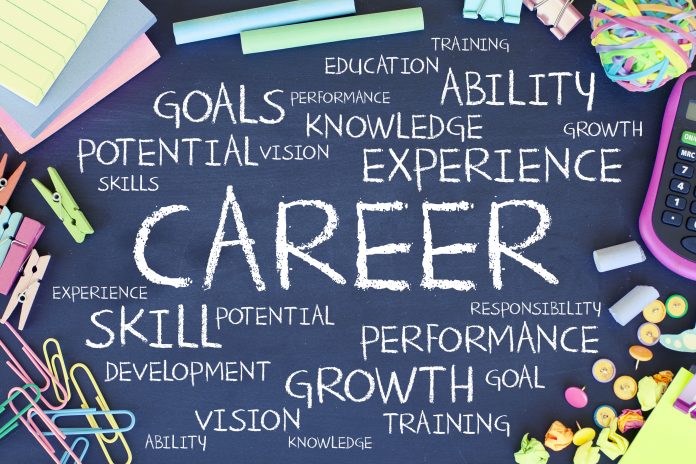Greg Orme author of The Human Edge, shares his tips on how to unlock and nurture our unique talents to help us communicate effectively now we’re all working remotely
Do you think 2021 will be any less volatile, uncertain, complex and ambiguous than 2020 has turned out to be? Even after the world recovers from the COVID-19 shock, it’s likely the whole of this decade will remain unpredictable and continuously disrupted. Change doesn’t happen at the same rate. Potential innovations build up like snow at the head of a narrow Alpine valley. For years, even decades, organisational leaders don’t have the urgency to enact it. Global shocks like COVID-19 trigger an avalanche. The pandemic has accelerated a number of long-term technological megatrends such as AI automation of white-collar jobs, telemedicine and increased remote working.
Even before the crisis, 92% of companies believed their business models would need to change to become more digitised. New research shows businesses, consumers and employees have vaulted five years forward in digital adoption in just a matter of months.(1) Organisations will need to continue to adapt rapidly. This means employees will need to keep pace with their own skills development like never before.
This begs the question: what are the competencies needed to succeed in these unsettled times? In my latest book The Human Edge I reveal the over-arching superpowers to future-proof your career in the next ten years: Consciousness, Curiosity, Creativity and Collaboration. These allow you to evolve as fast as our times are changing. Here are three practical, career-enhancing skills which underpin these crucial capabilities:
-
Find focus in a distracted world
It’s become fashionable to believe, with the aid of digital technology, we can do two or more things at once. This is nonsense. Multitasking is a myth. It hinders productivity because of the accumulated time you waste switching between tasks. Distraction is a pressing issue for all generations because everyone now carries a smartphone. Interruption stalks every step of our day. The result is the ability to direct attention for long periods of time has become far rarer – and more valuable as a result. To take back control, reverse the power dynamic. You control your smartphone, rather than the other way around. Firstly, audit your apps by asking a simple question: “What’s the benefit of investing my time on this app?” Write down the services you use and then pose that question for each app in turn. If the advantages are not immediately clear, delete the app for a month and see what happens. Only download it again if you genuinely miss it. Secondly, tame ‘always-on’ work communications. Set a rule to only check your inbox three times a day within predetermined time windows. Outside of these slots, log out of your email platform and turn off all notifications.
-
Learn something new every day
In the 2020s, we need to un-learn and re-learn more swiftly than any previous generation. Your natural human curiosity is proven to help you to absorb what you need to know faster and more effectively. However, research shows it’s like a cognitive muscle. Neglect it, it gets flabby. Exercise makes it bigger and stronger. Successful people take control of their daily agenda to find ‘offline islands’ in which they can learn. Try the ‘Five-Hour Rule’. This means redesigning your working time to liberate an hour each working day that you then ringfence for learning. This is a transformational mindset shift for the time-poor of the 21st Century. Use this hour wisely. It’s important to learn outside your specialism. Einstein called creativity ‘combinatory play’. He was describing your mind’s magical ability to introduce two previously unacquainted ideas from different domains of knowledge. New thinking happens when ideas ‘jump the fence’ from one place to another. This can only happen if you allow your curiosity to meander a little.
-
Learn to make an impact online
Governments and companies are now ushering millions back to their offices, failing to see the balance has been irrevocably shifted. Too many organisations see the cost savings. Too many workers have experienced the upsides. Numerous studies show people are happier(2) and often more productive(3) if allowed to work for some of their working week from home. Employees report people are even willing to accept a pay cut(4) for the privilege. Commuting is consistently reported as one of the least enjoyable regular life activities. In this changed context, it’s vital for people to learn how to communicate and collaborate ‘live’ on ZOOM and MSTeams calls and ‘asynchronously’ using imaginative video snippets, emails, graphics and social media. Those ahead of the curve are already acquiring the skills to facilitate teamwork using Google docs, Slack and other tools.
If necessity is the mother of invention, technology is often the father. The Second World War sparked the invention of the first digital computer, rocket technology, jet engines, pressurised plane cabins, radar – and even super glue and the ballpoint pen.(5) This pioneering spirit is now rippling through the modern business world. To be a successful human in a workplace increasingly dominated by digital innovation, it’s wise to get focused, get curious and learn how to partner with machines.
(2) https://www.economist.com/briefing/2020/09/12/covid-19-has-forced-a-radical-shift-in-working-habits
(3) https://academic.oup.com/qje/article-abstract/130/1/165/2337855?redirectedFrom=fulltext
(5) https://www.weforum.org/agenda/2020/04/coronavirus-covid19-pandemic-gadgets-innovation-technology/











